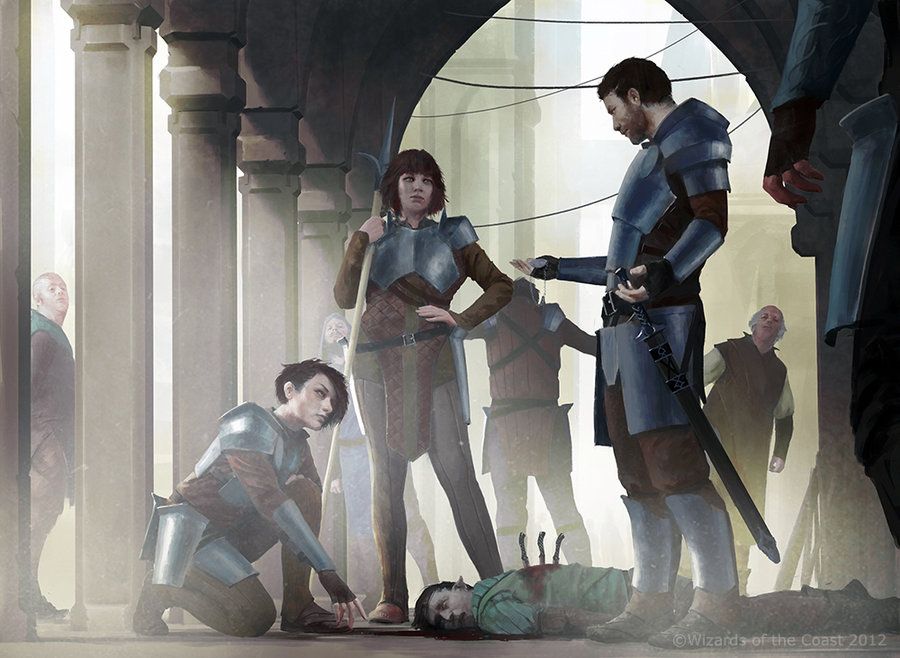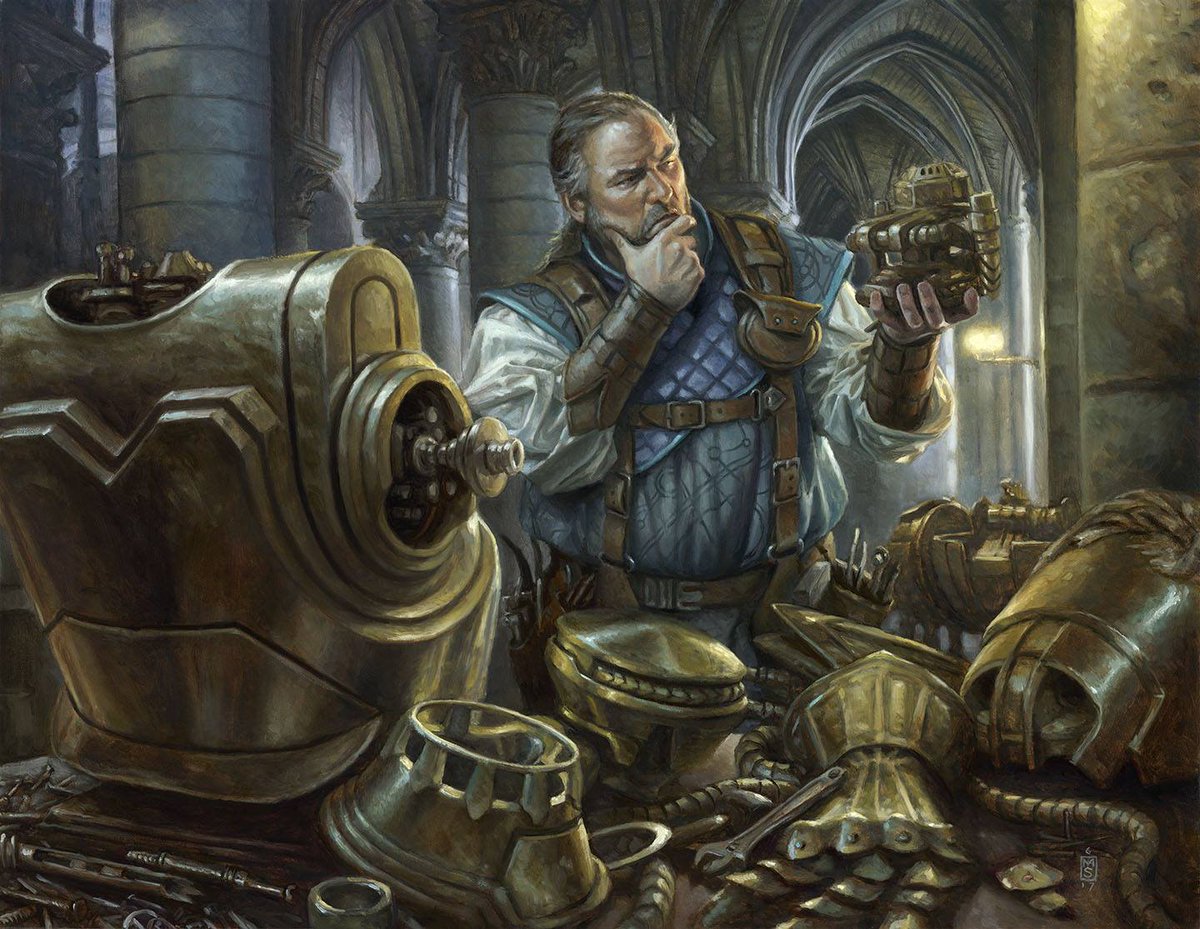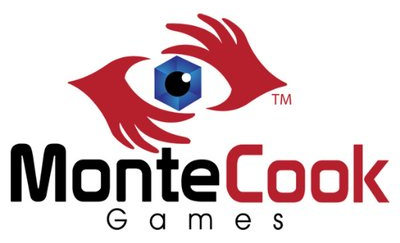Information Gathering
Types of Clues
Core Clues
Core clues are the clues needed to keep the plot moving forward. These are clues given by the Storyguide at the right time, in the right place, or to someone with the right skill. No roll is required is required, however if the players wants extra clues they roll. They assemble their dice pool while setting one die aside as an automatic success.Alternative Clues
Alternative clues are not essential to the story, but instead explore personal agendas and side stories.Clue Information
More successes mean more information. The Storyguide can share this additional information in several different ways, allowing the players to use successes in the variety listed below. The first piece of clue information cost two successes, each additional piece of information costs one success.Raw Information
Provides additional fact-related clues without interpretation or meaning.
Interpretation
Provides depth and meaning for understanding the clue and its relevance to the story or character.
Questions & Answer
Allows the player to ask questions about the clue.
Player Creation
The player creates raw information about the clue. These are subject to the Storyguide approval.
Delayed
Delayed clue information happens when a clue isn’t relevant in the moment but becomes obvious later on. In these cases, record the number of successes along with a descriptor — for example: two successes (World Politics). When a situation that might be relevant comes to light, the player or Storyguide can call upon those successes for answers.
Information as Enhancement
Players may also use their clue finding successes as Enhancements to rolls that the information would aid. The duration of the Enhancement depends on the situation and number of successes.
Incomplete
The Storyteller may give an incomplete clue as a complication or consolation, which may assist finds another clue or bring the clue into focus later, similar to a delayed clue.
Tainted Clues
The Storyteller may present Tainted Clues disguised as another type of clue. This will be unknown until discover and may act as a complication finding another clue or type of clue.
Methods
The following basic information-gathering methods suggest dice pools and the types of clue information each method would yield. Finding information procedurals 83may cause Complications, such as giving offense or being noticed by the opposition.
In an investigation, characters may use a variety of game traits, Attributes, Skills, Merits, and otherwise.
The character uses her own education and understanding to figure out the relevance of a clue. She must have already found the clue and acquired the necessary raw information.
Dice Pool :Skill + Intellect
Type :
Interpretation, Q&A, Player Creation
The character uses ties to an organization or sorts through its chain of command to find information in its records or personnel.
Dice Pool :Using this method requires an Access roll (see Paths p. 40) if the character possesses a Path with contacts into the source of the clue. Otherwise, the character must force access by gaining the confidence of someone with contacts, impersonating someone with legitimate access, or by entering a facility storing the information.
Type :
Any, limited by the medium, which contacts (or lack thereof), and what the organization has stored. For example, a corporation may keep raw data dumps in its labs, leaving its researchers to interpret the meaning, while its executive offices contain high-level summaries of the experts’ conclusions.
The character breaks into a computer or other system with rules-based permissions (such an Enochian angelic hierarchy or coded notebook) to acquire information. The ability to control the system is considered information for the purposes of this roll.
Dice Pool :Enigmas + Cunning (possibly a specialty)
Type :
Depends on the contents of the system. For very large archives, this is part of a staged complex action, where the next step is searching the archive (see “Searching an Archive,” below).
The character interviews a subject who knows about the clue. The subject must be open to sharing information. Getting to this point may require intrigue. Interviewing is a form of encouraging a behavior; see p. 89 for more information.
Dice Pool :Persuasion + Intellect (open)
Empathy + Cunning (nonverbal)
Type :
Any, limited by the subjects knowledge
Dice Pool :Culture + Resolve (organized)
Type :
Dice Pool :Humanities + Resolve (organized)
Enigmas + Resolve (unorganized)
Type :
The character performs experiments and technical analyses to raise further information. She must possess the appropriate materials and facilities. This includes methodically examining a crime scene. As long as the roll succeeds, the character finds any information that is routinely uncovered by such tests.
Dice Pool :Science + Resolve + Specialty
Science + Intellect + Specialty (Innovative)
Type :
Raw Information, Q&A, Player Creation
Dice Pool :Enigmas + Resolve (ritual ingredient)
Science + Resolve (achemical compound)
Culture + Resolve (Street drug)
Type :
The character sifts through a library, electronic archive or other repository of information. Getting into the archive might require Social actions or hacking first, making this part of a complex action.
Dice Pool :Humanities + Resolve (organized)
Enigmas + Resolve (unorganized)
Skill + Intellect
Type :
Depends on the contents of the archive. For example, one archive might reveal who the elected officials in a small town were 10 years ago (raw information), but another might contain archived news detailing the issues that propelled candidates into office.
The character uses his senses to detect something. He spots someone lurking, or hears the whispers of an underground stream nearby.
Dice Pool :Integrity + Cunning
Type :
Raw Information, Q&A, Player Creation
Analysis
The character uses her own education and understanding to figure out the relevance of a clue. She must have already found the clue and acquired the necessary raw information.
Dice Pool :
Contacts
The character uses ties to an organization or sorts through its chain of command to find information in its records or personnel.
Dice Pool :
Hacking
The character breaks into a computer or other system with rules-based permissions (such an Enochian angelic hierarchy or coded notebook) to acquire information. The ability to control the system is considered information for the purposes of this roll.
Dice Pool :
Interview
The character interviews a subject who knows about the clue. The subject must be open to sharing information. Getting to this point may require intrigue. Interviewing is a form of encouraging a behavior; see p. 89 for more information.
Dice Pool :
Legwork
Dice Pool :
Paper or Lore Chase
Dice Pool :
Research Evidence
The character performs experiments and technical analyses to raise further information. She must possess the appropriate materials and facilities. This includes methodically examining a crime scene. As long as the roll succeeds, the character finds any information that is routinely uncovered by such tests.
Dice Pool :
Scrounging
Dice Pool :
Searching an Archive
The character sifts through a library, electronic archive or other repository of information. Getting into the archive might require Social actions or hacking first, making this part of a complex action.
Dice Pool :
Sensing
The character uses his senses to detect something. He spots someone lurking, or hears the whispers of an underground stream nearby.
Dice Pool :








Comments